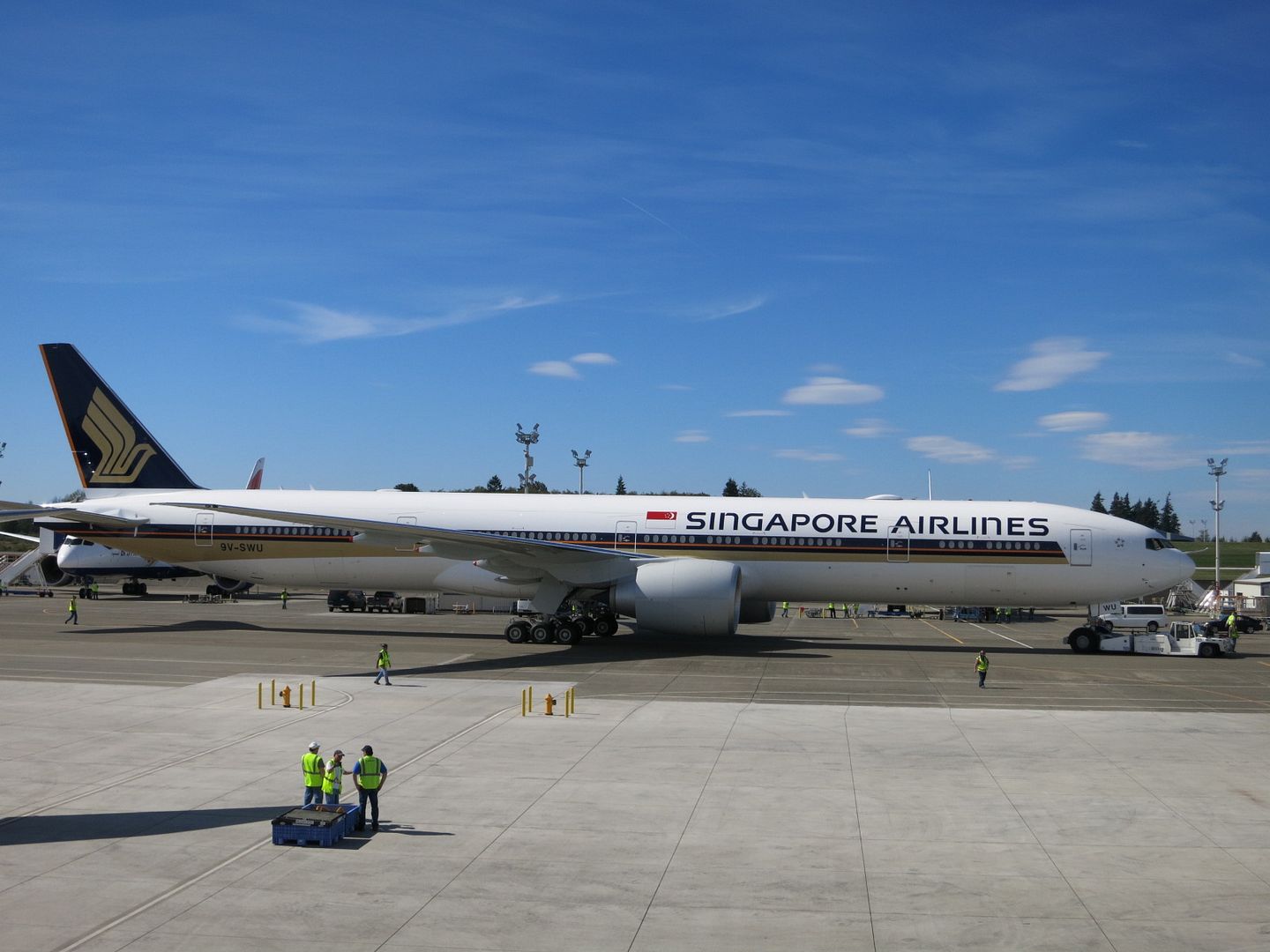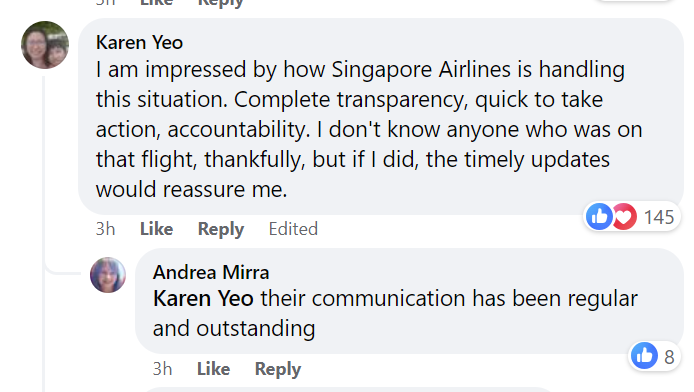On Monday Singapore Airlines flight 321 from London Heathrow to Singapore experienced severe turbulence, causing injuries to passengers and crew and one passenger even died. The flight diverted to Bangkok to provide medical care. Since then, and this is very much a secondary story, the response from Singapore Airlines has been exemplary.
Images have emerged from inside SQ321 after hitting severe turbulence while enroute to Singapore, killing one passenger. https://t.co/sPhFfVr1Tb pic.twitter.com/IngvtijtAD
— Breaking Aviation News & Videos (@aviationbrk) May 21, 2024
Cabin of London to Singapore plane that was affected by turbulence
pic.twitter.com/JyIlLde8mz— Science girl (@gunsnrosesgirl3) May 22, 2024
Aftermath of Singapore Airlines flight 321 from London to Singapore which had to divert to Bangkok due to severe turbulence. One death passenger and several injured. Blood everywhere, destroyed cabin. #singaporeairlines #sq321 pic.twitter.com/C2FgrVt9yv
— Josh Cahill (@gotravelyourway) May 21, 2024
There are 3 basic things that are important for an airline to do here.
- take care of customers and families
- proactively share information
- do not deflect responsibility or hide behind spokespeople
This sounds simple but is easier to screw up than you might think. When then-CEO Doug Parker traveled to New York after US Airways flight 1549 crashed into the Hudson he left his briefcase in the parking garage – and the airline had to evacuate US Airways headquarters in Tempe thinking it was a bomb.
Immediately Singapore Airlines dispatched a team to meet the plane and passengers in Bangkok. They sent a ‘rescue flight’ to Bangkok to bring everyone that did not need medical care as quickly as possible to Singapore. The airline CEO met these passengers on arrival.
Singapore arranged onward transportation for those connecting, transportation to hotels and residences in Singapore, and lounge access for all passengers on the flight (including all economy passengers).
The airline promised regular updates and actually provided continual status updates on passengers and crew on both Twitter and Facebook, such as:
As of 1700hrs (Singapore Time) on 22 May 2024, Singapore Airlines can confirm that an additional five passengers who were on board SQ321 will be returning to Singapore today.
Another 74 passengers and six crew members are still in Bangkok. This includes those receiving medical care, as well as their family members and loved ones who were on the flight. One crew member is scheduled to return to Singapore tomorrow, 23 May 2024.
Here’s the airline’s CEO speaking directly to the events.
The airline’s Chairman released a statement as well,
On behalf of the Singapore Airlines Board, I extend my deepest condolences to the family and loved ones of our passenger who passed away on 21 May 2024 in the SQ321 incident. I assure all passengers and crew members who were on board the aircraft that we are committed to supporting them during this difficult time. I also wish to express my gratitude to everyone in Singapore, Thailand, and around the world who are assisting those affected by this incident.

They generally ceased other, unrelated communications. Reaction to communications online has been uniformly positive.

The injuries and especially loss of life were a tragedy. These cannot be said to have Singapore’s ‘fault’ in any way. (It was also a Boeing plane, by the way, and this wasn’t Boeing’s fault either.) There’s a lot of blame going around on social media, with some attributing the incident to climate change – though this too is difficult in the particular incident.
Regardless of fault, the airline has taken ownership of the situation and that’s what people want more than anything else – no deflection, just handling the matter, stepping in and stepping up. While we’re still in the early stages, the initial communication and proactive steps by Singapore Airlines has been exemplary in handling the incident.


Great write up Gary!
It seems that the gentleman who passed away during this episode, Mr. Kitchen, suffered a heart attack, having had a prior incidence of heart disease. Otherwise we read he was a quite vigorous man, so we can only offer our sympathies.
Some of the best reporting on this has been in The Times (London), and what stood out to me was how stoic the Singapore crew was; specifically one male FA was mentioned who had suffered very painful back injuries but continued nonetheless. Great kudos to them all.
There but for the grace of God go I. But I do keep my seat belt fastened.
That said, I’m REALLY sorry for the folk in the lavs when this happened.,
If they had diverted to Madras , India , they would have avoided the turbulence .
Wow, very refreshing to see a CEO that gets it and understands he and his company have responsibilities here. This CEO should be a model for the US airlines who seem to play “pass the buck” when issues like this arise.
Well said. Not to blame anyone but when reviewing begins this might be a teachable moment to remind the public about always wearing one’s seatbelt.
@Drrichard … the astronauts in the space station do not wear seatbelts .
You mean they didn’t say the 9 year olds should have known things could get nasty?
@Alert, what a dork like comment. Are you familiar with space turbulence? LOL. @drrichard is correct. pay attention to those annoying announcements and wear your seatbelts even idk the sign is not on.
Blame climate change for everything. As if air turbulence never existed before today
“These cannot be said to have Singapore’s ‘fault’ in any way.”
I am not sure that will ultimately be true.
The final report will no doubt address the issue, but I wonder at present if dispatch or the pilots should have given the storm a far wider berth.
All the Airlines take you from point A to B bit moments like these separate the great ones from the rest. In my experience, Singapore Airline is the only airline that treats economy class passengers with decency. In times of flight delay or disruption, they proactively rebooks flights with staff and boarding passes available as one steps off the original flight.
It is always interesting to read news reports of people flying through the air and hitting their heads during severe air turbulence. What does happen is that the airplane suddenly drops and ends up hitting those who don’t have their seatbelts buckled. For a very short time before they are hit by the airplane, they are relatively weightless.